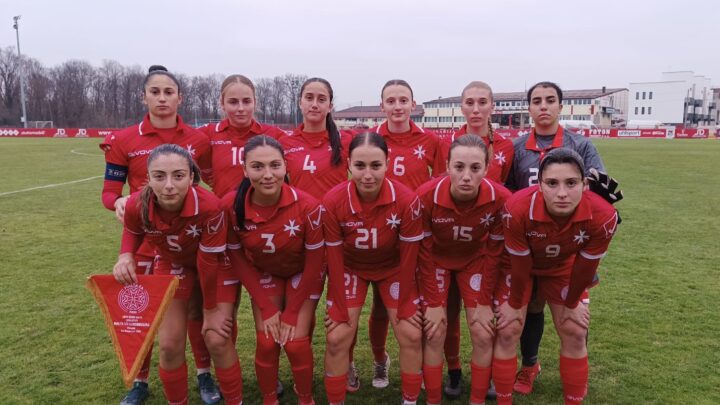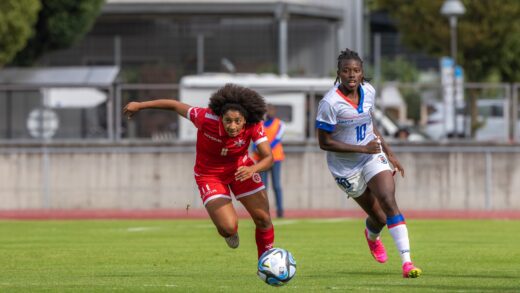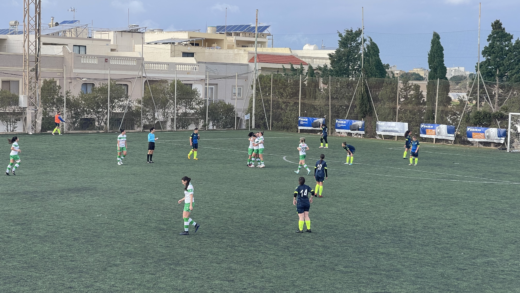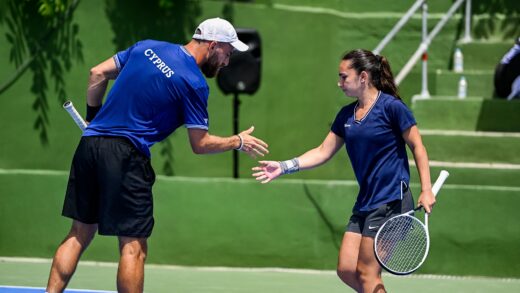Malta’s U19 Women’s National Team succumbed to three straight defeats against Slovenia, Croatia and Luxembourg in the UEFA Women’s U19 European Qualification Championships. Coaching the team for the first time in a tournament, David Attard dove into the experience navigating the week with the team and the need for the young side to break through the fear barrier.
“We Must Overcome The Fear Barrier”
It’s a week since Malta’s Women’s U19 National Team ended its commitments in the first round of the UEFA Women’s U19 EURO Qualification Championship, with the picture not too different from that observed in the U17 cohort. The side travelled to Croatia, but fell to a 7-0 defeat against Slovenia, a 3-0 defeat to Croatia, before letting slip an initial lead to be downed also by Luxembourg by 2-1.
Prior to the tournament, coach David Attard was clear on the threat the opposing nations brought. Following his first tournament in charge, Attard was asked on his assessment of the performances against the expectations.
The newly-appointed couch was honest in his words, “We knew that Slovenia & Croatia were strong. Even so, we did not expect to concede so many against Slovenia, even if four goals came at the final twenty minutes of the match.”
Speaking of the performances of the team against the tournament objectives, David Attard continued, “Our target was to put in good performances to help our players gain confidence at this level and learn how to handle the pressure at international level, in view of the senior level football. I think to their credit players had an excellent attitude against Slovenia. Despite, the score, players kept fighting and made their presence known against their opposition.”
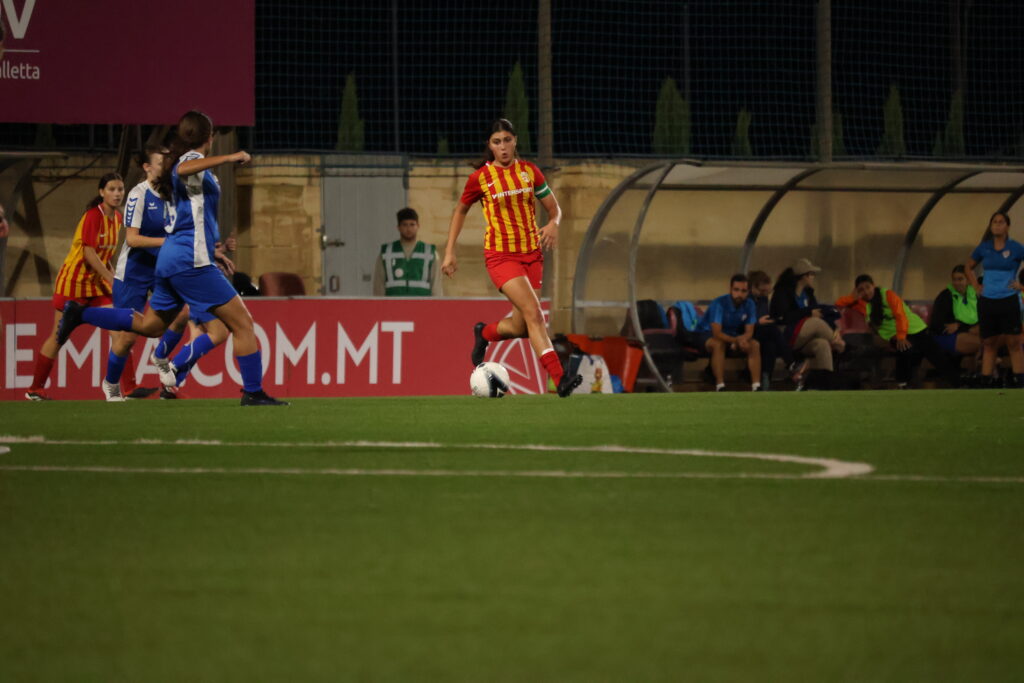
On the other hand, eyeing improvement, David Attard underlined the need to overcome a fear barrier, “We still have some ways to go in being brave with possession. I felt we played too safe at times, scared to make mistakes. I think it was evident that we struggled against our opposition’s presence, so we must work more to overcome that fear barrier.”
Attard tied this to the true relevance of youth international tournaments, “I believe this is the age to break that fear barrier, to truly give these players the best foundation to go into the national senior team and handle its demands. It is something we will need to work on more to get these players ready.”
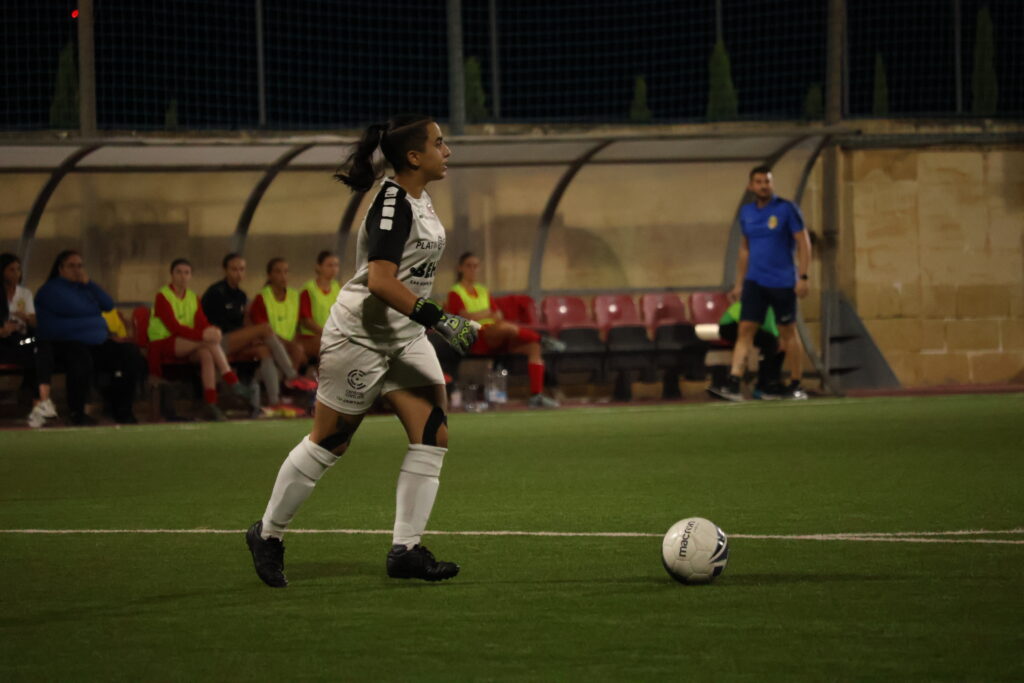
Navigating The Motions Of The Tournament & Selections
As noted above, the team had a just two days to pick themselves up following a big defeat against Slovenia, to face hosts Croatia. The team improved the scoreline against the latter, but still fell to goals early and late in the match.
Questioned on whether he believes such goals are indicators of nerves and fatigue, David Attard replied, “The early goals we conceded from set-pieces, against both teams. Even though we worked to avoid this in the second match against Croatia, we fell into the same trap. I am not sure it is nerves, perhaps more of a lack of concentration early on. In the latter stages we struggled physically in every match, but I believe the players still left everything on the pitch. It’s part of football and we must learn from this.”
Attard noted that the final match against Luxembourg panned out somewhat differently, but still showed parallels indicating a significant area of improvement, “We avoided conceding early against Luxembourg and earned the lead from a set-piece ourselves. However, then we conceded twice late again, showing us that we must work on this aspect.”
Indeed, the team’s only goal in the tournament was scored against Luxembourg, from a set-piece, courtesy of Fatma Al Girbi. Questioned about the moment, Attard said, “It was a moment in the game where we felt Fatma (Al Girbi) was best to take the kick and we scored from it. I am happy for the player, but as a coach the scorer is not so important. In the end, it is about every player putting their best performance, so that together we can get the performances on the pitch.”
Al Girbi was one of the most utilised players in the tournament, and is a regular in San Gwann’s U19 and senior selections domestically. Pushed on the criteria for selection, Attard stressed, “In the end, we know the capabilities of our players and make our selections based on their performances with the clubs. If a player trains well, plays matches, puts in consistent performances and has the right attitude, then they are putting themselves in a good position to get selected.”
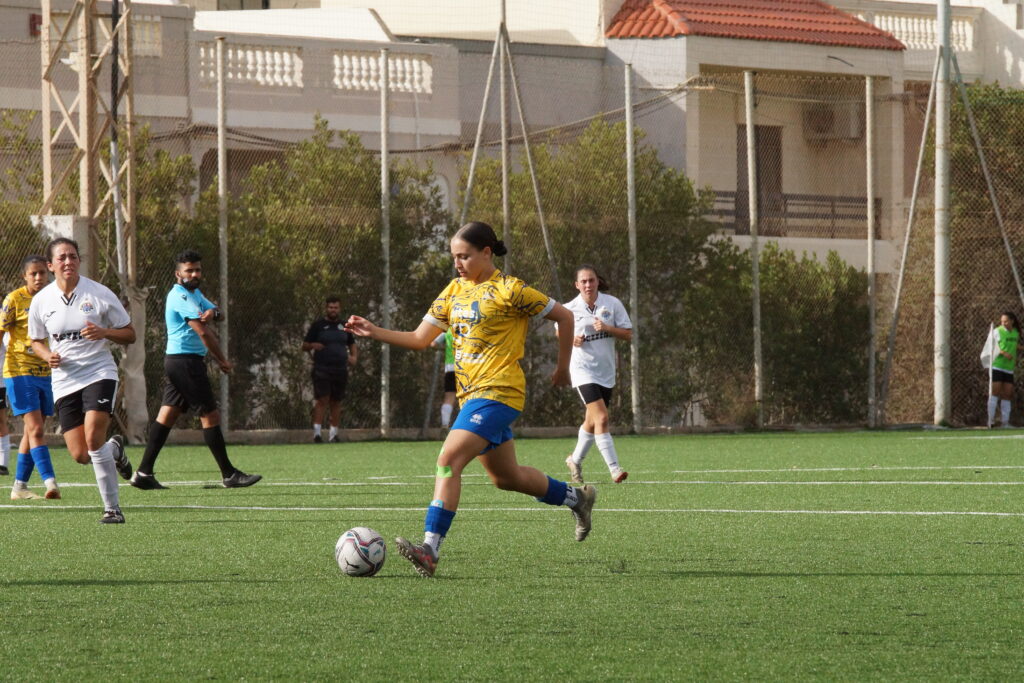
The Need To Challenge Boundaries & At A Relevant Pace
The tournament was played on away soil, which David Attard discussed in view of the way it challenges all those involved, “One of the first elements is that it forces players to adapt to a new pitch, a grass pitch which is very different to what they are used to in Malta, also putting into account that in Malta they play in the same grounds. So, that is a learning experience and indeed the pitch we played on was poor so there was a lot to get used to. There is still a process ongoing for players to adapt to the ideas the staff are trying to implement.”
He continued, “From a positive perspective, the fact that we were playing abroad allowed us to be more focused because we were cut off from the noise and it allowed us to really band together as a team, both players and staff together.”
However, there was one caveat, “On the other hand, playing away means that we missed the home support in matches, so that is something that we enjoy when we play in Malta.”
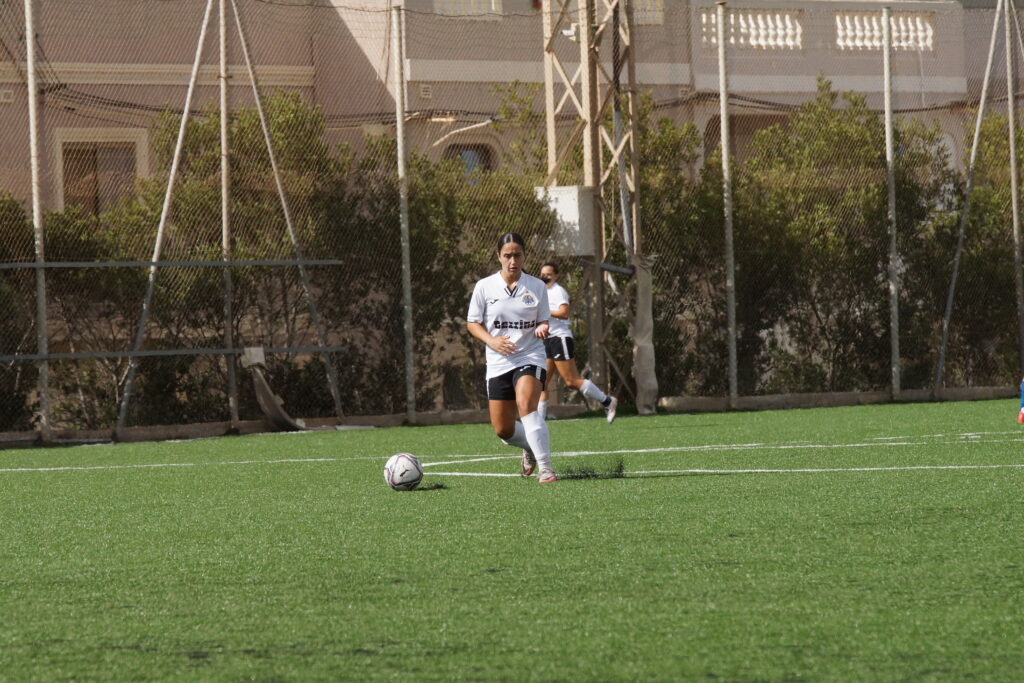
A newcomer to the women’s game, David Attard was probed on the key takeaways from his first experience leading the national team, “It is evident that set-pieces are critical in women’s football. Slovenia won against Croatia by a set-piece and Croatia scored against Luxembourg through a set-piece. So, this is something that is important to keep in mind.”
As the women’s game takes flight, ‘smaller’ nations are becoming better developed and more equipped to deal with the rapid growth. This is something that Malta will also need to address if it is to maintain pace in its growth and build on the progress of the senior team.
In fact, questioned about the setups of the team’s faced, David Attard said, “It is evident that our opponents were well fully staffed, with even more complete technical setups. I think we did our homework in analysis and were prepared on what to face, doing our best with the resources we have. However, it is a tournament that showed the progress that these nations are making and that we still have a way to go to get to a level playing field.”
November saw all domestic football halted in the women’s game in Malta for the nation to embark to international football in three cohorts within one month for the first time in its history. While the senior women’s team managed one of its best ever results, in a draw against Hungary, the results by the U17 and U19 women’s national teams painted a different picture, with the youth teams falling to straight defeats in all matches, with meagre goalscoring opportunities and in certain cases big scoreline defeats.
However, focusing on the elements within his remit, Attard’s answer regarding key take-aways from the tournament was, “Looking forward, there were positives in training which I think we didn’t translate into the pitch. So, we must learn to play under pressure. As I said before the tournament, we were realistic about our capabilities and the strengths of the opposition in every match, but when we get our chances on the ball we must play football.”
He finished, “I think the biggest hurdle we have is to believe in ourselves more, to believe in our abilities and play without fear. We must understand that making mistakes is the way for us to break into a new level. I think we overthink on the consequence of taking a chance, so I try to encourage my players to be brave and will continue to do so.”
Back in Action
While the powers that be will have plenty to ponder following these tournaments to sort out youth structures in view of the long-term future, several players within the Malta selection were already back in action domestically on Saturday and Sunday with senior teams. This as Hibernians took on Valletta, and Lija Athletic faced Mtarfa in the Assikura Women’s League, as well as during the Super Cup final that was played between Birkirkara and Swieqi United.
Those donning Swieqi United’s and Valletta’s shirt could be on the pitch at the Centenary Stadium tonight once more, this time in the Assikura Women’s Youth League, as the leaders Swieqi United take on second-placed Valletta at 20:00, with just three points separating the two. Meanwhile, a few others will be at Mgarr Ground in the mid-table fixture between Hibernians and San Gwann at 20:15. Tomorrow presents the fixture between bottom sides SK Lija and Mtarfa at the Centenary Stadium at 20:00.
Lead Image: Malta FA
Make sure to never miss an Assikura Women’s League match by syncing your calendar here.
Stay up to date by following The Sporting Fan on social media: Instagram ~ Facebook ~ X
